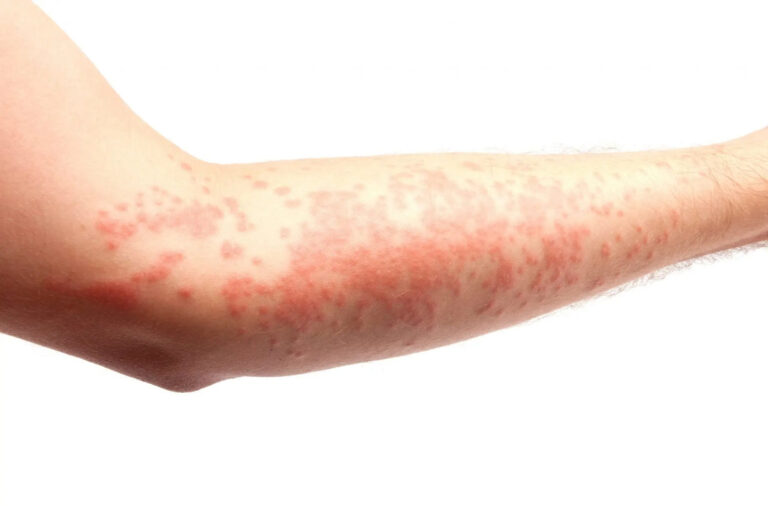Modafinil and Personality Changes
Modafinil, a wakefulness-promoting medication, is commonly prescribed for conditions like narcolepsy, obstructive sleep apnea, and shift work sleep disorder. By influencing neurotransmitter systems such as dopamine, serotonin, glutamate, and orexin, it can impact not only alertness but also aspects of personality and behavior. Studies suggest that modafinil’s effects go beyond wakefulness, potentially shaping how individuals think, feel, and interact.
Cognitive Enhancements and Behavioral Changes
Cognitive Enhancements
Modafinil is well-regarded for its cognitive-enhancing properties. It improves working memory and episodic memory, making it beneficial for individuals with cognitive deficits. Research has shown its efficacy in treating cognitive dysfunctions associated with psychiatric disorders such as major depression, bipolar disorder, schizophrenia, and ADHD. These cognitive benefits have made modafinil popular not only among patients but also among healthy individuals seeking to enhance their cognitive performance.
Behavioral Changes in Animal Studies
Studies on animals, specifically Wistar rats, have shown that modafinil can induce behavioural changes. These changes are dose-dependent. For instance, high doses of modafinil increase locomotor activity and cause oxidative stress in specific brain regions, such as the amygdala, hippocampus, and striatum. The increased locomotor activity and oxidative damage suggest that while modafinil enhances certain cognitive functions, it can also lead to significant behavioural alterations depending on the dose administered.
Mood Alterations and Hypersexuality
Mood Changes in Healthy Volunteers
A study involving healthy young volunteers highlighted that modafinil can affect mood without significantly enhancing cognitive functions. Participants reported increased somatic anxiety, psychological anxiety, and aggressive mood factors, especially after undergoing cognitive stress tests. These findings indicate that while modafinil promotes wakefulness, it can also induce mood alterations and anxiety, highlighting the need for careful monitoring of mood changes in individuals taking the drug.
Case Report on Hypersexuality
A case report involving a 45-year-old female patient with idiopathic hypersomnia revealed a rare but notable side effect of modafinil: hypersexuality. The patient experienced a significant increase in sexual desire and activity after starting modafinil treatment. This side effect persisted until the dosage was reduced. This case underscores the importance for clinicians to be aware of such potential behavioural side effects and to manage treatment with the lowest effective dose to mitigate risks.
Modafinil’s Effects on Menopausal Symptoms
Study on Menopausal Mouse Model
Research involving a surgical mouse model of menopause demonstrated that chronic modafinil therapy could alleviate depressive-like behaviour and spatial memory impairments. The treatment also improved sleep-wake disturbances. The study suggested that modafinil’s actions involved the dopaminergic and GABAergic systems, making it a potential therapeutic candidate for menopausal women experiencing psychological symptoms. This finding is particularly relevant given the limitations and adverse reactions associated with hormone replacement therapy.
Potential Therapeutic Use for Menopausal Women
The positive effects of modafinil on menopausal symptoms highlight its potential as an alternative to hormone replacement therapy. While hormone replacement therapy has been the traditional treatment for menopausal symptoms, its effectiveness is often insufficient, and it carries risks of severe side effects. Modafinil’s ability to improve mood, cognitive functions, and sleep-wake patterns offers a promising alternative for managing menopausal symptoms, pending further research to confirm these benefits in human subjects.
Functional Connectivity in the Aging Brain
Study on Healthy Elderly Subjects
A study on healthy elderly subjects investigated the effects of modafinil on brain connectivity using functional magnetic resonance imaging (fMRI). The findings showed that modafinil enhanced the centrality of brain networks, particularly in the visual cortex and cerebellum. This enhancement in functional connectivity suggests that modafinil can help maintain cognitive functions in aging populations by modulating brain network activity.
Implications for Cognitive Maintenance in Aging Populations
The improved functional connectivity observed in elderly subjects suggests that modafinil could be beneficial for cognitive maintenance in aging populations. As people age, maintaining optimal brain function becomes increasingly important for preserving quality of life. Modafinil’s ability to enhance connectivity between critical brain regions supports its potential role in aiding cognitive health in the elderly, making it a valuable area for further research.
Creativity and Cognitive Performance
Effects on Divergent and Convergent Thinking
Modafinil’s impact on creativity has been explored through tasks measuring convergent and divergent thinking. In a study involving healthy volunteers, modafinil did not significantly enhance performance on convergent thinking tasks, which involve solving problems with a single correct answer. However, it negatively impacted divergent thinking tasks, which require generating multiple, creative solutions to a problem. This effect was particularly notable in individuals with lower baseline creativity. These results suggest that while modafinil might improve certain cognitive functions, it may hinder creative processes, indicating that its role as a general cognitive enhancer is limited.
Comparison with Other Psychostimulants
Other psychostimulants, such as methylphenidate (Ritalin), have shown different effects on creativity. Methylphenidate has been reported to enhance divergent thinking in individuals with ADHD, unlike modafinil, which seems to reduce it in healthy individuals. This comparison highlights the variability in how different psychostimulants can affect cognitive functions and creativity, emphasizing the need for personalized approaches when considering cognitive enhancers.
Mechanisms of Personality Changes
Neurotransmitter Systems Affected by Modafinil
Modafinil influences several neurotransmitter systems in the brain, including dopamine, norepinephrine, serotonin, glutamate, GABA, histamine, and orexin. By affecting these systems, modafinil promotes wakefulness and cognitive enhancements. For example, it inhibits the dopamine transporter, increasing dopaminergic activity, which is associated with improved vigilance and cognitive function. However, this also means modafinil can induce anxiety, mood alterations, and other behavioural changes.
Potential Pathophysiological Mechanisms
The behavioural changes associated with modafinil, such as anxiety and hypersexuality, may be linked to oxidative stress and neuroplasticity. Studies on animal models have shown that modafinil can increase oxidative damage in specific brain regions, potentially affecting mood and behaviour. Additionally, modafinil’s impact on synaptic transmission and neurogenesis may contribute to its complex effects on personality and behaviour.
Clinical Implications and Recommendations
Balancing Cognitive Benefits with Behavioral Risks
Clinicians need to balance the cognitive benefits of modafinil with its potential behavioural risks. While modafinil can significantly improve cognitive functions and wakefulness, it can also cause mood alterations, anxiety, and other behavioural changes. Monitoring patients for these side effects and adjusting dosages as necessary is crucial for safe and effective treatment.
Dosing Strategies and Individual Differences
Individual responses to modafinil can vary widely, necessitating personalized treatment approaches. Factors such as baseline cognitive function, personality traits, and the presence of psychiatric disorders can influence how a person responds to modafinil. Clinicians should consider these individual differences when prescribing modafinil and tailor dosages to minimize side effects while maximizing benefits.
Future Research Directions
Further research is needed to understand the long-term effects of modafinil and its impact on personality and behaviour. Large-scale studies involving diverse populations will help clarify its safety and efficacy. Additionally, exploring the underlying mechanisms of modafinil’s effects can inform the development of more targeted and effective cognitive enhancers.
Conclusion
Summary of Key Findings
Modafinil offers significant cognitive benefits, particularly for individuals with sleep disorders and certain psychiatric conditions. However, its use can lead to various personality and behavioural changes, including mood alterations, anxiety, and hypersexuality. These effects are dose-dependent and influenced by individual differences.
Final Thoughts on Modafinil Use
While modafinil holds promise as a cognitive enhancer, its potential behavioural risks must be carefully managed. Clinicians should monitor patients closely, adjust dosages as needed, and consider individual characteristics when prescribing modafinil. Ongoing research will continue to shed light on its complex effects and help optimize its use in clinical settings.








